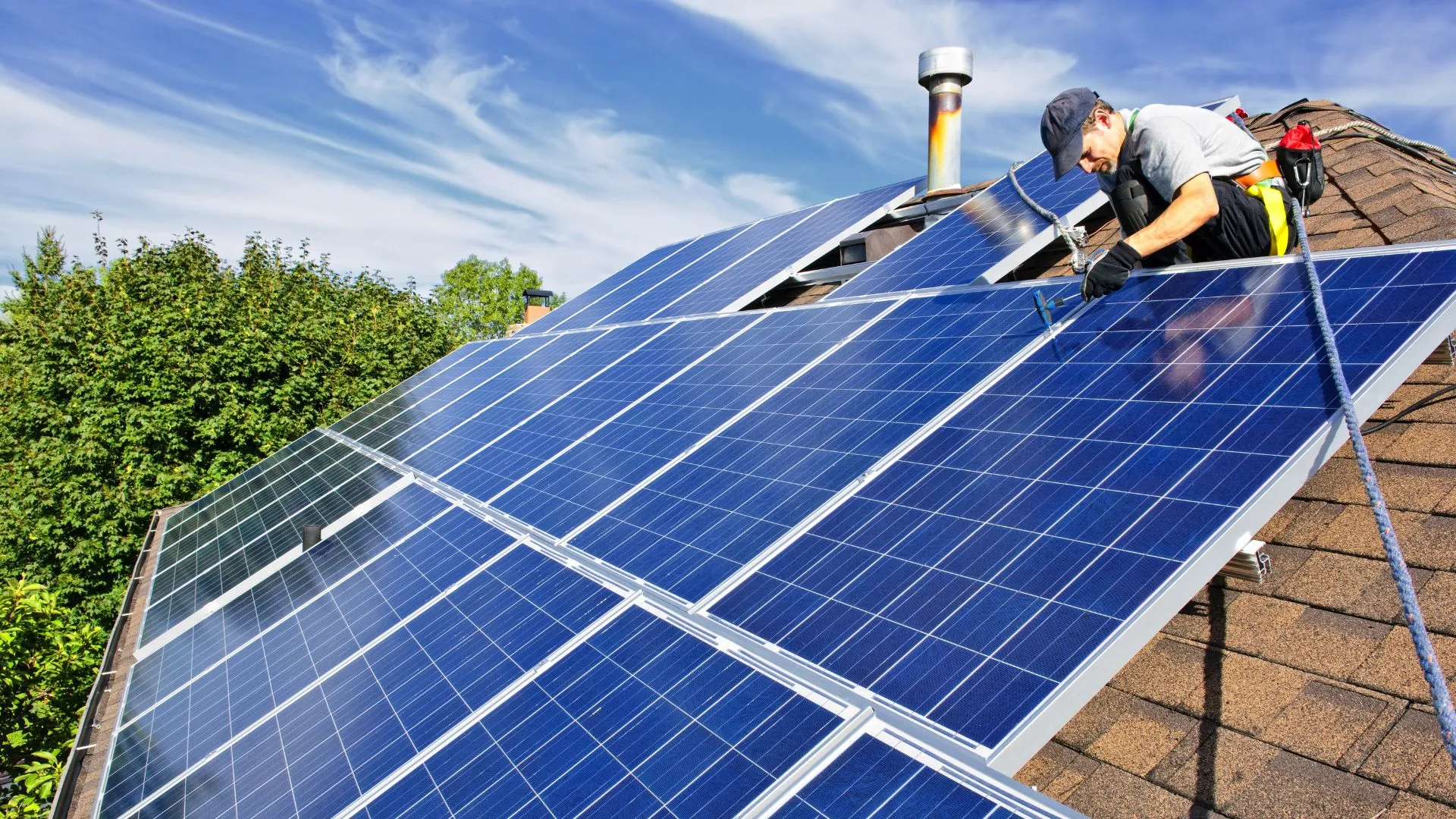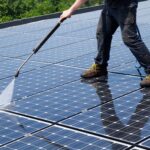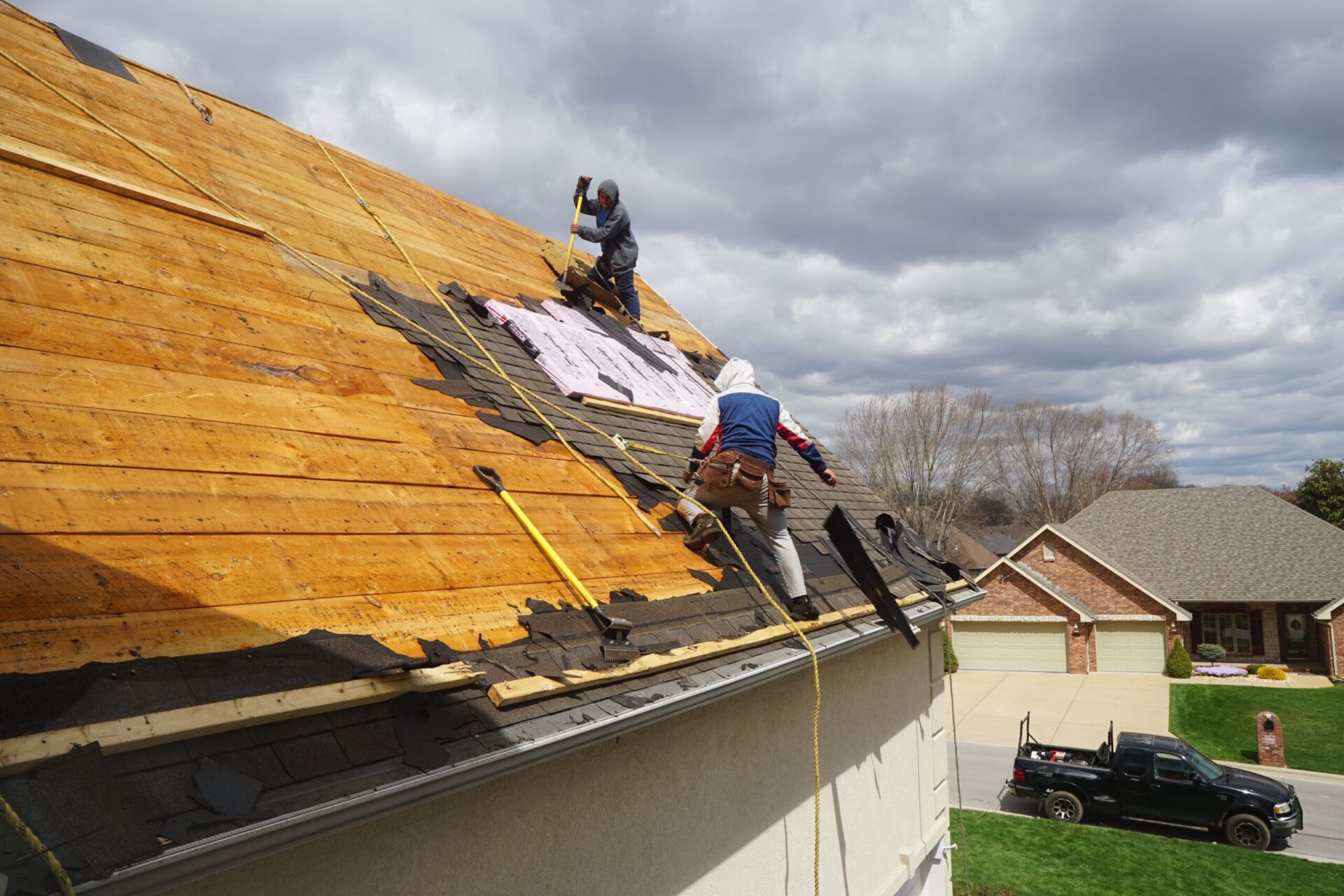
The Benefits of Installing Solar Panels on Your Roof

The Benefits of Installing Solar Panels on Your Roof
Solar panels on a roof refer to the installation of photovoltaic (PV) panels on the roof of a building, usually a home or a commercial building. The panels are designed to capture energy from the sun and convert it into electricity that can be used to power the building’s electrical system.
What are the advantages of using solar panels on roofs?
Lower Electricity Bills:
One of the main reasons people choose to install solar panels on their roofs is to save money on their electricity bills. Solar panels generate electricity from the sun, which means you can use the energy they produce to power your home, reducing your reliance on the grid and lowering your monthly bills. Over time, the savings on your electricity bills can add up, and you can enjoy lower energy costs for years to come.
Increased Property Value:
Installing solar panels on your roof can also increase the value of your property. Homes with solar panels are more attractive to buyers, and studies have shown that homes with solar panels sell for more money than those without. This means that if you ever decide to sell your home, you could recoup some or all of the cost of installation through a higher sale price.
Lack of maintenance
Uncleaned gutters, accumulating debris, and other upkeep matters also often result in a roof’s early deterioration. Minor issues, such as blistering, broken shingles, and minor leaks, could quickly become a more significant concern when ignored.
Simple and periodic roof maintenance goes a long way in preventing roof issues, especially in a place like Vancouver, where the weather and climate continuously put your roofs to the test.
By letting roofing professionals handle your upkeep, you could save more in the long run by preventing the need for costly repairs and replacements.
Environmental Benefits
Using solar power can have significant environmental benefits. Unlike traditional electricity generation, which relies on fossil fuels like coal and gas, solar power is clean and renewable. By installing solar panels on your roof, you can reduce your reliance on these fossil fuels and help to reduce greenhouse gas emissions. This can help to combat climate change, reduce air pollution, and protect natural resources like water and land.
Energy Independence:
When you generate your own electricity from solar panels, you become less reliant on the grid and the utility companies that supply it. This can give you greater energy independence and security, and protect you from power outages and other disruptions. With solar power, you have a reliable source of electricity that can keep your home running even when the grid goes down.
Government Incentives:
Many governments offer incentives for homeowners who install solar panels on their roofs. These incentives can include tax credits, rebates, and other financial incentives that can help to offset the cost of installation and make solar power more accessible to more people. These incentives can help to make solar power more affordable, and can make it easier for more people to make the switch to clean, renewable energy. In summary, installing solar panels on your roof can bring a number of benefits, including lower electricity bills, increased property value, environmental benefits, energy independence, and government incentives. By investing in solar power, you can reduce your impact on the environment, save money on your electricity bills, and enjoy greater energy independence and security.
What are the disadvantages of having solar panels on the roof?
- High upfront cost: Solar panel systems can be expensive to install, and the upfront costs may be a barrier for some homeowners. While there are government incentives and financing options available, it’s still a significant investment.
- Weather dependency: Solar panels rely on sunlight to generate electricity, which means they may not perform as well in cloudy or rainy weather. While they can still generate some energy in these conditions, the output may be lower than on sunny days.
- Maintenance requirements: Solar panels require some maintenance to ensure they’re working efficiently, including cleaning the panels to remove dirt and debris and checking the wiring and other components. While this isn’t a significant amount of work, it’s something homeowners should be aware of.
- Roof damage: Depending on the type of installation, solar panels can add extra weight to a roof, which could potentially cause damage or leaks over time. However, a professional installer can assess the roof’s suitability and ensure the installation is done properly to minimize this risk.
- Aesthetics: Some people may not like the look of solar panels on their roof, and they may be concerned about the impact on the building’s aesthetic appeal. However, modern solar panels are designed to be sleek and attractive, and many people find them to be a positive addition to their home’s appearance.
- Resale value: While solar panels can increase a home’s value, some potential buyers may be put off by the idea of having to take over a solar panel system that they may not be familiar with. However, this is becoming less of an issue as solar panels become more common and well-known.
Frequently Asked Questions (FAQs)
What are the benefits of using solar panels on roofs?
One of the main disadvantages of installing solar panels on a roof is the high upfront cost, which can be a barrier for some homeowners. Other potential drawbacks include weather dependency, maintenance requirements, potential roof damage, and aesthetics concerns. However, many people find that the benefits of solar panels outweigh the drawbacks.
What are the disadvantages of using solar panels on roofs?
The benefits of using solar panels on roofs include:
- Generating clean, renewable energy from the sun.
- Reducing energy costs.
- Increasing energy independence and reliability.
- Decreasing the environmental impact of traditional energy sources.
Have you found this article helpful? Comment down below and share us your thoughts on this.





